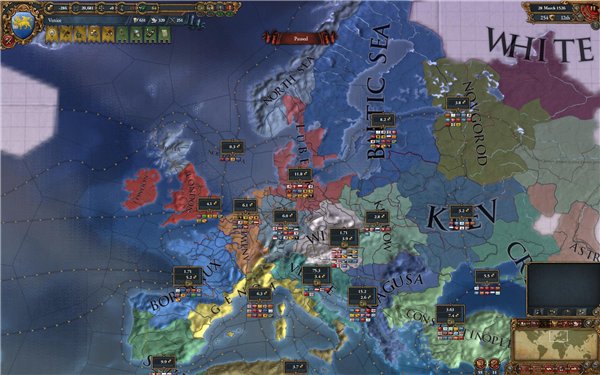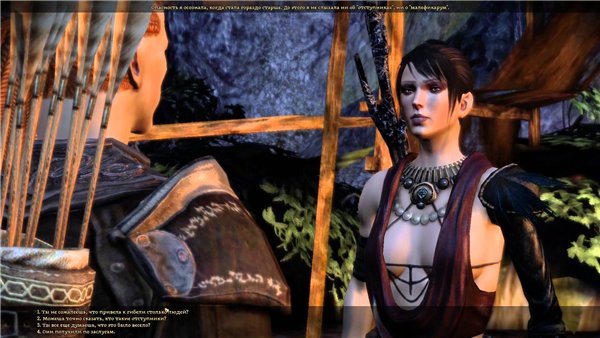Computer games that may be useful in the educational process
The topic of computer games in education has for quite a long time been causing a lot of controversy for two main reasons: damage to sight and a large amount of cruelty and violence in the subjects of games. Having studied a lot of monographs and reports of modern scientists, we highlight the main topics of discussion among teachers regarding games and the educational process.

Types of educational games
Computer games are not clearly divided into genres. For example, researcher Nicola Whitton, based on the motive with which they were developed, divides the game into 4 types:
1. Entertaining, modified for training (Example: MineCraftEDU );
2. Special educational, from major developers;
3. Games that are created by teachers and students themselves.
')

The budgets of educational games, compared with commercial ones, are just scanty. And it is quite a strong impact on their appearance. Entertainment games compete for the attention of a gamer, which largely stimulates the development of the industry, but educational ones most often spread exclusively and purposefully across schools. Issues of aesthetics of educational games, even investigated in a separate monograph devoted exclusively to this topic.
Commercial games are usually quite complex and unforeseen. As for educational, they, on the contrary, should be predictable and simple, so that their external form, plot, additional information is not distracted from the educational material.
How to choose the right educational game?
Experts believe that the games that students create independently are almost ideal. The fact is that in order to come up with something like that, you need to study the topic in detail. The teacher in this case directs the students to the sources of the necessary information and prevents the occurrence of errors. But the idea and the whole process of the game is completely a child's creation. The material being studied will thus be remembered much better than in the case when the child simply reads or hears them.
What genres of games are most suitable for educational purposes? John Collik gives such examples: high school students will be best served by real-time strategy games. As an example of a successful educational game, he cites the strategy of Europa Universalis, as a successful platform for studying history and geography.

Another interesting option for older students is an educational game in which you need to distribute limited resources. An example of this is the FTL: Faster Than Light spacecraft simulator. And, of course, various MMORPGs that perform socialization tasks are not slowing down the popularity.

Computer games and emotional intelligence
The unique ability to distinguish and understand a variety of emotions and feelings, using this information for their own purposes, has the name "emotional intelligence"
.
The emotional state of a person greatly influences what actions he performs. In games, however, various variations are worked out for cases where a player may experience complex emotions. Some researchers in this context identify such a key component as " crucible experiences ." This is a variety of stressful situations, having survived that person grows personally. Thanks to the games you can survive the important moments and unpleasant circumstances.
There are other options when they become for students an excellent illustration of the moral dilemmas that exist in the real world. It is mainly about such situations, when there is a choice between what a person is obliged to do and to break the rules for good. A classic game based on dilemmas and choices can be called “Dragon Age: Origins”

Computer games and the theory of pedagogy
Of course, computer games can not be called real pedagogy. But even in the most popular commercial games in the world, you can find something in common with theories of learning. This topic was researched by Schoolnet Corporation, which promotes the development of modern educational developments. Representatives of this organization compare computer games with the Kolb learning cycle. When a player can not pass this or that test, he thinks about the reason for the failure, then plans a sequence of actions to be performed to win. As a result, the gamer independently evaluates the correctness of the choice made or the falsehood of his assumptions.
Something similar is observed when dividing the game into complex and simple levels. At first, the game involves performing simple tasks using additional information. After that, when a person is already fully acquainted with its rules, he is invited to become more independent and quick-witted to successfully complete the levels more difficult. Thus, computer games motivate a person to take responsibility for self-study.

Types of educational games
Computer games are not clearly divided into genres. For example, researcher Nicola Whitton, based on the motive with which they were developed, divides the game into 4 types:
1. Entertaining, modified for training (Example: MineCraftEDU );
2. Special educational, from major developers;
3. Games that are created by teachers and students themselves.
')

The budgets of educational games, compared with commercial ones, are just scanty. And it is quite a strong impact on their appearance. Entertainment games compete for the attention of a gamer, which largely stimulates the development of the industry, but educational ones most often spread exclusively and purposefully across schools. Issues of aesthetics of educational games, even investigated in a separate monograph devoted exclusively to this topic.
Commercial games are usually quite complex and unforeseen. As for educational, they, on the contrary, should be predictable and simple, so that their external form, plot, additional information is not distracted from the educational material.
How to choose the right educational game?
Experts believe that the games that students create independently are almost ideal. The fact is that in order to come up with something like that, you need to study the topic in detail. The teacher in this case directs the students to the sources of the necessary information and prevents the occurrence of errors. But the idea and the whole process of the game is completely a child's creation. The material being studied will thus be remembered much better than in the case when the child simply reads or hears them.
What genres of games are most suitable for educational purposes? John Collik gives such examples: high school students will be best served by real-time strategy games. As an example of a successful educational game, he cites the strategy of Europa Universalis, as a successful platform for studying history and geography.

Another interesting option for older students is an educational game in which you need to distribute limited resources. An example of this is the FTL: Faster Than Light spacecraft simulator. And, of course, various MMORPGs that perform socialization tasks are not slowing down the popularity.

Computer games and emotional intelligence
The unique ability to distinguish and understand a variety of emotions and feelings, using this information for their own purposes, has the name "emotional intelligence"
.
The emotional state of a person greatly influences what actions he performs. In games, however, various variations are worked out for cases where a player may experience complex emotions. Some researchers in this context identify such a key component as " crucible experiences ." This is a variety of stressful situations, having survived that person grows personally. Thanks to the games you can survive the important moments and unpleasant circumstances.
There are other options when they become for students an excellent illustration of the moral dilemmas that exist in the real world. It is mainly about such situations, when there is a choice between what a person is obliged to do and to break the rules for good. A classic game based on dilemmas and choices can be called “Dragon Age: Origins”

Computer games and the theory of pedagogy
Of course, computer games can not be called real pedagogy. But even in the most popular commercial games in the world, you can find something in common with theories of learning. This topic was researched by Schoolnet Corporation, which promotes the development of modern educational developments. Representatives of this organization compare computer games with the Kolb learning cycle. When a player can not pass this or that test, he thinks about the reason for the failure, then plans a sequence of actions to be performed to win. As a result, the gamer independently evaluates the correctness of the choice made or the falsehood of his assumptions.
Something similar is observed when dividing the game into complex and simple levels. At first, the game involves performing simple tasks using additional information. After that, when a person is already fully acquainted with its rules, he is invited to become more independent and quick-witted to successfully complete the levels more difficult. Thus, computer games motivate a person to take responsibility for self-study.
Source: https://habr.com/ru/post/367897/
All Articles